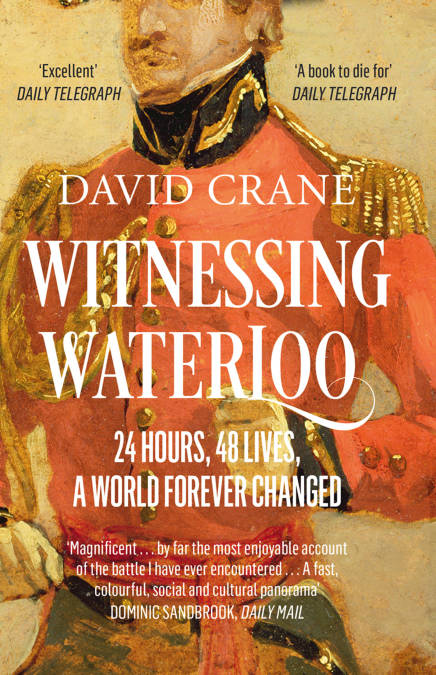
- Retrait gratuit dans votre magasin Club
- 7.000.000 titres dans notre catalogue
- Payer en toute sécurité
- Toujours un magasin près de chez vous
- Retrait gratuit dans votre magasin Club
- 7.000.0000 titres dans notre catalogue
- Payer en toute sécurité
- Toujours un magasin près de chez vous
8,49 €
+ 8 points
Format
Description
[Previously published as ‘Went The Day Well’]
A sweeping political, social, military and cultural overview of the United Kingdom on the eve, and then the day, of the greatest battle fought by British arms.
Midnight, Sunday, 17 June 1815. There was no town in England that had not sent its soldiers, hardly a household that was not holding its breath, not a family, as Byron put it, that would escape ‘havoc’s tender mercies’ at Waterloo, and yet at the same time life inevitably went on as normal.
As Wellington’s rain-sodden army retreated for the final, decisive battle, men and women in England were still going to the theatre and science lectures, still working in the fields and the factories, still reading and writing books and sermons, still painting their pictures and sitting in front of Lord Elgin’s marbles as if almost five thousand did not already lie dead. After ten hours of savage fighting, Waterloo would be littered with the bodies of something like 47,000 dead and wounded. Meanwhile, as the day unfolded, a whole nation, countryside and town, artisan and aristocrat, was brought together by war.
From Samuel Johnson Prize shortlisted author David Crane, Went the Day Well is a breathtaking portrait of Britain in those moments. Moving from England to the battle and back again this vivid, stunning freeze-frame of a country on the single most celebrated day in its modern history shows Crane’s full range in tracing the endless, overlapping connections between people’s lives. From private tragedies, disappointed political hopes, and public discontents to grandiloquent public celebrations and monuments, it answers Wellington’s call as he rallied his troops to ‘Think what England is thinking of us now’.
A sweeping political, social, military and cultural overview of the United Kingdom on the eve, and then the day, of the greatest battle fought by British arms.
Midnight, Sunday, 17 June 1815. There was no town in England that had not sent its soldiers, hardly a household that was not holding its breath, not a family, as Byron put it, that would escape ‘havoc’s tender mercies’ at Waterloo, and yet at the same time life inevitably went on as normal.
As Wellington’s rain-sodden army retreated for the final, decisive battle, men and women in England were still going to the theatre and science lectures, still working in the fields and the factories, still reading and writing books and sermons, still painting their pictures and sitting in front of Lord Elgin’s marbles as if almost five thousand did not already lie dead. After ten hours of savage fighting, Waterloo would be littered with the bodies of something like 47,000 dead and wounded. Meanwhile, as the day unfolded, a whole nation, countryside and town, artisan and aristocrat, was brought together by war.
From Samuel Johnson Prize shortlisted author David Crane, Went the Day Well is a breathtaking portrait of Britain in those moments. Moving from England to the battle and back again this vivid, stunning freeze-frame of a country on the single most celebrated day in its modern history shows Crane’s full range in tracing the endless, overlapping connections between people’s lives. From private tragedies, disappointed political hopes, and public discontents to grandiloquent public celebrations and monuments, it answers Wellington’s call as he rallied his troops to ‘Think what England is thinking of us now’.
Spécifications
Parties prenantes
- Auteur(s) :
- Editeur:
Contenu
- Nombre de pages :
- 384
- Langue:
- Anglais
Caractéristiques
- EAN:
- 9780007358373
- Date de parution :
- 28-01-15
- Format:
- Ebook
- Protection digitale:
- Adobe DRM
- Format numérique:
- ePub

Les avis
Nous publions uniquement les avis qui respectent les conditions requises. Consultez nos conditions pour les avis.






